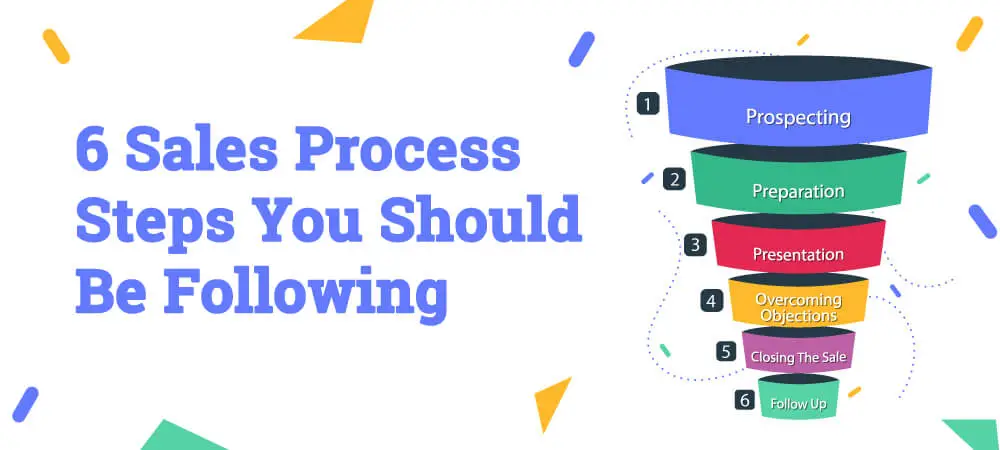How do you handle objections during a sales pitch?
How do you handle objections during a sales pitch? There’s no denying that objections are a common hurdle in the world of sales. From pricing concerns to skepticism about product benefits, handling objections effectively is crucial for a successful sales pitch. In this blog post, we will explore strategies and techniques to confidently address objections and turn them into opportunities to close the deal. By mastering the art of objection handling, you can build trust with potential customers and ultimately increase your sales success.
Key Takeaways:
- Listen actively: Pay close attention to the objections raised by the prospect during your sales pitch.
- Empathize with the prospect: Show understanding and empathy towards the concerns raised by the prospect.
- Provide solutions: Offer solutions to address the objections raised and demonstrate how your product or service can meet their needs.
- Anticipate objections: Prepare in advance for common objections and have ready responses to address them effectively.
- Clarify doubts: Ask probing questions to clarify any uncertainties or doubts that the prospect may have, and provide relevant information to alleviate concerns.
Understanding Objections
Definition and Importance of Handling Objections
For any salesperson, objections are a natural part of the sales process. These are concerns or hesitations that potential customers raise during a sales pitch. Learning to handle objections effectively is crucial as it can make the difference between closing a deal and losing a potential customer. By addressing objections confidently and informatively, you can build trust and credibility with your prospects.
Types of Common Sales Objections
Handling objections efficiently requires an understanding of the common types of objections that may arise during a sales pitch. Some of the most common objections include price, competition, product/service relevance, timing, and trust. By anticipating these objections, you can be better prepared to address them during your pitch. Assume that objections are a natural part of the sales process and view them as opportunities to showcase the value of your product or service.
| Common Sales Objections | Explanation |
|---|---|
| Price | Concerns about cost and value for money. |
| Competition | Comparisons with other products or services in the market. |
| Product/Service Relevance | Questions about how the offering meets the customer’s needs. |
| Timing | Concerns about the right time to make a purchasing decision. |
| Trust | Issues related to credibility, reliability, or reputation. |
Preparing for Objections
Research and Customer Insight
One of the key steps in preparing for objections during a sales pitch is conducting thorough research and gaining valuable customer insight. By understanding your customers’ pain points, needs, and objections in advance, you can tailor your pitch to address their concerns effectively.
Anticipating and Preparing Responses
Responses to objections should be well-thought-out and tailored to each potential concern that may arise during the sales pitch. By anticipating common objections and preparing responses in advance, you can confidently address any doubts or hesitations that may arise from your customers.
With a proactive approach to objections, you can turn potential challenges into opportunities to further engage with your customers and demonstrate the value of your product or service.

Strategies for Handling Objections
The Listen-Acknowledge-Explore-Respond Technique
Strategies for handling objections during a sales pitch require a well-thought-out approach. The Listen-Acknowledge-Explore-Respond technique is a proven method to address objections effectively. First, actively listen to the customer’s concerns without interrupting. Acknowledge their objection to make them feel heard and understood. Explore the root cause of the objection by asking probing questions. Finally, respond by presenting a tailored solution that addresses their specific concerns.
Reframing Objections as Opportunities
Handling objections during a sales pitch can be reframed as opportunities to further engage with the customer. When a customer presents an objection, view it as a chance to dive deeper into their needs and preferences. By reframing objections as opportunities, salespeople can demonstrate their understanding of the customer’s perspective and showcase how their product or service can address the objection effectively.
Reframing objections as opportunities allows salespeople to build trust with the customer and showcase their problem-solving skills. It also enables sales professionals to differentiate themselves from competitors by demonstrating a customer-centric approach focused on addressing the customer’s needs and concerns.
Effective Communication Skills
Building Rapport and Trust
Many sales professionals understand the importance of building rapport and trust with potential clients. By establishing a connection on a personal level, you can create a foundation of trust that will help navigate objections smoothly. Building rapport involves active listening, showing genuine interest, and finding common ground with the prospect.
Verbal and Non-Verbal Communication Techniques
Effective communication involves both verbal and non-verbal techniques. With verbal communication, it’s important to use clear and concise language, ask open-ended questions, and actively listen to the prospect’s concerns. Non-verbal cues such as body language, tone of voice, and eye contact also play a crucial role in conveying confidence and building trust during a sales pitch.
Building trust through effective communication requires being mindful of your tone, body language, and overall presence. Engage with the prospect through active listening and maintain positive body language to show your genuine interest in their needs. By mastering both verbal and non-verbal communication techniques, you can better navigate objections and build a strong foundation of trust with potential clients.
Overcoming Specific Objections
Price-related Objections
For any salesperson, price-related objections are common during a sales pitch. When faced with concerns about cost, it’s important to emphasize the value that the product or service brings to the customer. Highlighting the return on investment and unique selling points can help justify the price, making it easier for the prospect to see the long-term benefits of their purchase.
Product or Service-related Objections
Service-related objections can often stem from misconceptions or lack of information about the product or service. To address these concerns, sales professionals should be prepared to provide detailed explanations and demonstrations that showcase the features and benefits of what they are offering. By actively listening to the prospect’s concerns and tailoring responses to address specific objections, you can build trust and credibility, ultimately facilitating a successful sale.
This approach not only helps overcome objections but also positions the salesperson as a knowledgeable and reliable resource for the prospect. By addressing objections head-on and providing relevant information, you can alleviate any doubts the customer may have and guide them towards making a confident purchasing decision.
Learning from Objections
Analyzing and Modifying the Sales Approach
Keep in mind that objections are not roadblocks but opportunities for growth. Any objections raised during a sales pitch should be seen as valuable feedback that can help us refine our sales approach. Take the time to analyze the objections raised by the potential customer and consider how you can modify your pitch to address their concerns effectively. By understanding the root cause of objections, you can tailor your sales approach to better meet the needs of your prospects and increase your chances of closing the deal.
Continuous Learning Through Feedback
Learning to handle objections effectively is an ongoing process that requires continuous learning and improvement. By actively seeking feedback from both successful and unsuccessful sales pitches, you can gain valuable insights into areas for growth and development. The feedback received from objections can provide a wealth of information that can be used to refine your sales techniques, improve your communication skills, and ultimately enhance your overall sales performance. Embrace objections as opportunities to learn and grow in your sales career.
How do you handle objections during a sales pitch?
Conclusion
Ultimately, handling objections during a sales pitch requires preparation, active listening, and a solutions-oriented mindset. By acknowledging and addressing objections with empathy and confidence, sales professionals can build trust and credibility with potential customers. For more insights on common sales objections and strategies to overcome them, check out 20 Examples of Common Sales Objections With …
Hope you learned “How do you handle objections during a sales pitch?” also read How can I Improve my sales skills?.
If you like the content please support and follow us on Instagram
.






